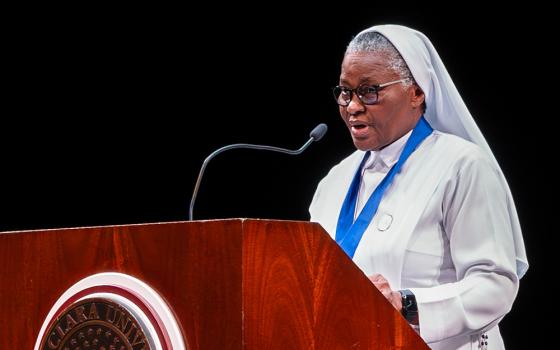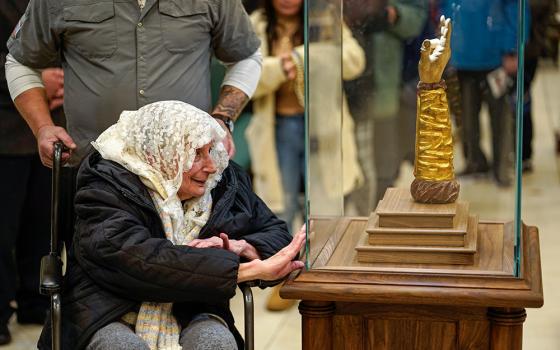Francis announces wide indulgences for Year of Mercy, voicing compassion for those who have had abortions and conferring faculties on members of the schismatic, traditionalist Society of St. Pius X.
Robert Mickens on the Francis Legacy: Will structural change follow attitudinal change?
In new book, 11 cardinals urge no change in rules on divorced and remarried. Says one of them, mercy without conversion (which means refraining from sexual relations with new spouse) "is the mistaken pity of an incompetent and/or weak physician who contents himself with bandaging wounds without treating them."
---------------------------------------------------------------------
PART ONE: A SERIES ON THE LEGACY OF THE DOCTRINE OF DISCOVERY
Editor's note: It may seem like papal statements from 500 years ago are ancient history. But Native American activists and scholars insist that Catholicism's past continues to affect the present. Papal bulls from the 1400s condoned the conquest of the Americas and other lands inhabited by indigenous people. The papal documents led to an international norm called the Doctrine of Discovery, which dehumanized non-Christians and legitimized their suppression by nations around the world, including by the United States. Now Native Americans say the church helped commit genocide and refuses to come to terms with it.
Part one of six: Intergenerational grief on Cheyenne River Indian reservation
---------------------------------------------------------------------
From Public Religion Research Institute (PRRI): The 'Francis effect' is limited. Catholics like him a lot, feel better about the church, but little effect on religious attendance or affiliation. One of the findings:"By a margin of 20-percentage points, American Catholics are more likely to say Pope Francis (80 percent), as opposed to U.S. Bishops (60 percent), understand their needs and views well. Among former Catholics, roughly six in ten (59 percent) say that Pope Francis understands the needs and views of American Catholics well, while only 35 percent say U.S. Bishops understand American Catholics well."




